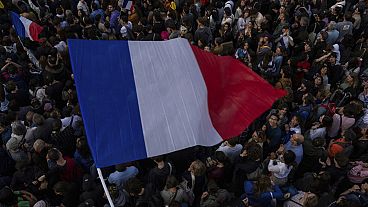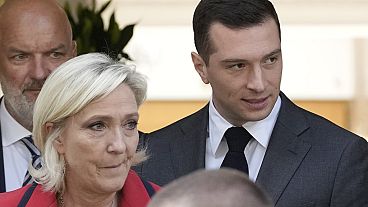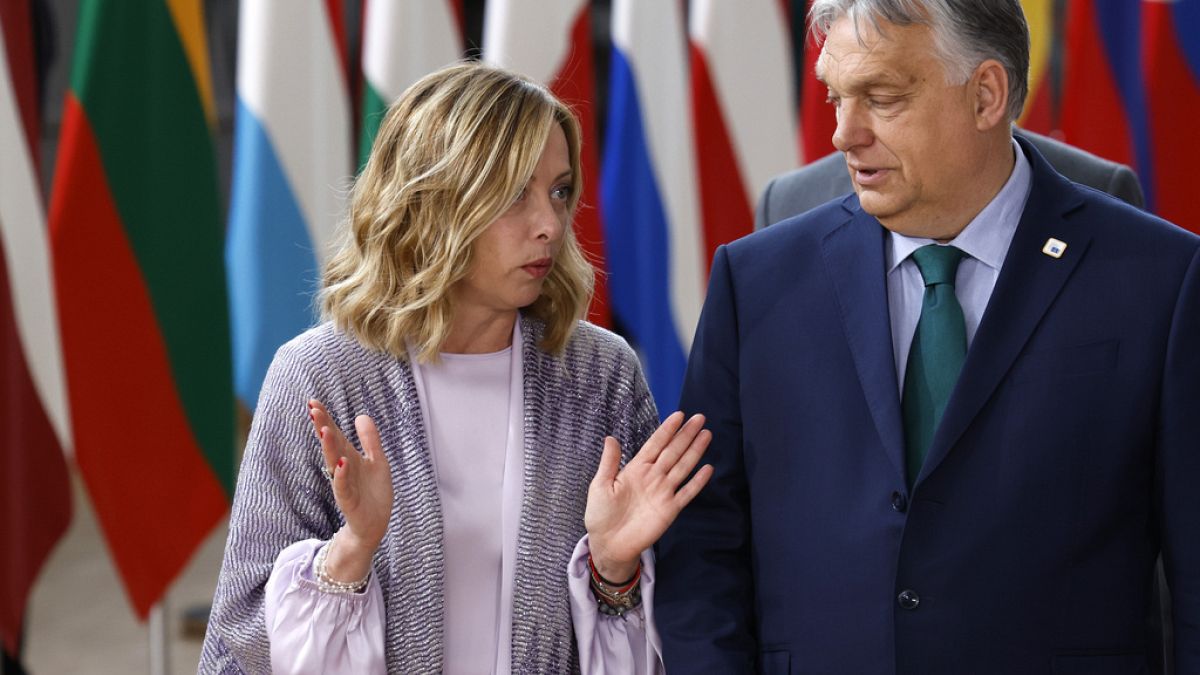The Identity and Democracy group no longer has the numbers to constitute itself in the European Parliament, with its members being charmed by the European Conservatives and Reformists or the new Patriots for Europe.
The radical right in the European Parliament is experiencing crucial times. After the official (re)formation of the European Conservatives and Reformists (ECR) group, other parties in the area are choosing sides.
The ECR now counts 84 MEPs, making it the third largest group in parliament. It aims to heavily influence European policies in the next legislature, as explained by their co-chair Nicola Procaccini (Brothers of Italy), who has just been re-elected together with Polish Joachim Brudziński.
"The political weight has shifted noticeably to the right and this will make the role of the European Conservatives particularly strategic because it is barycentric within the centre-right political reality, so in short, this enlargement will give us the chance to be particularly influential," Procaccini told Euronews.
In the meantime, the Patriots for Europe are working behind the scenes: the alliance of nationalist parties founded by Hungarian Prime Minister Viktor Orbán, together with Czech and Austrian sovereigntists, needs more members to form a political group.
Among the candidates are political forces that are currently part of another group, Identity and Democracy (ID), including Italy's Lega and the French National Rally.
The end of ID and the strategies of Le Pen and Salvini
The departure of Matteo Salvini and Marine Le Pen's MEPs would signal the final dissolution of the ID group, which already lacks the minimum numbers required to form a group — 23 MEPs from at least seven member states.
ID's numbers have dwindled further after the exit of six MEPs from the Austrian Freedom Party, who left to establish the Patriots for Europe group and the sole Estonian MEP's migration to the European Conservatives and Reformists.
Chega's two Portuguese MEPs, who are set to join the new Patriots group, will also depart soon. They might be followed by other smaller delegations from both the ID group and the Non-attached.
"Some of these parties have a very pragmatic approach. They need a group to have roles in parliament, lead committees and receive money", Francesco Nicoli, an analyst from the Bruegel think tank, told Euronews.
"So they might compromise in the end. I think they are more likely to join Orban's new party rather than ECR," he added.
According to Nicoli, the League has to distinguish itself from the Brothers of Italy for internal political reasons and cannot, therefore, form its own group in the European Parliament. Therefore, the natural (and perhaps the only) landing place for Salvini's party is Orbán's Patriots.
Le Pen, on the other hand, could follow a particular political trajectory, which would bring her closer to the ECR group and make her appear more moderate in the 2027 presidential elections.
However, the day of truth is set to be next Monday, when both Patriots for Europe and ID are scheduled to hold their constitutive meetings.












